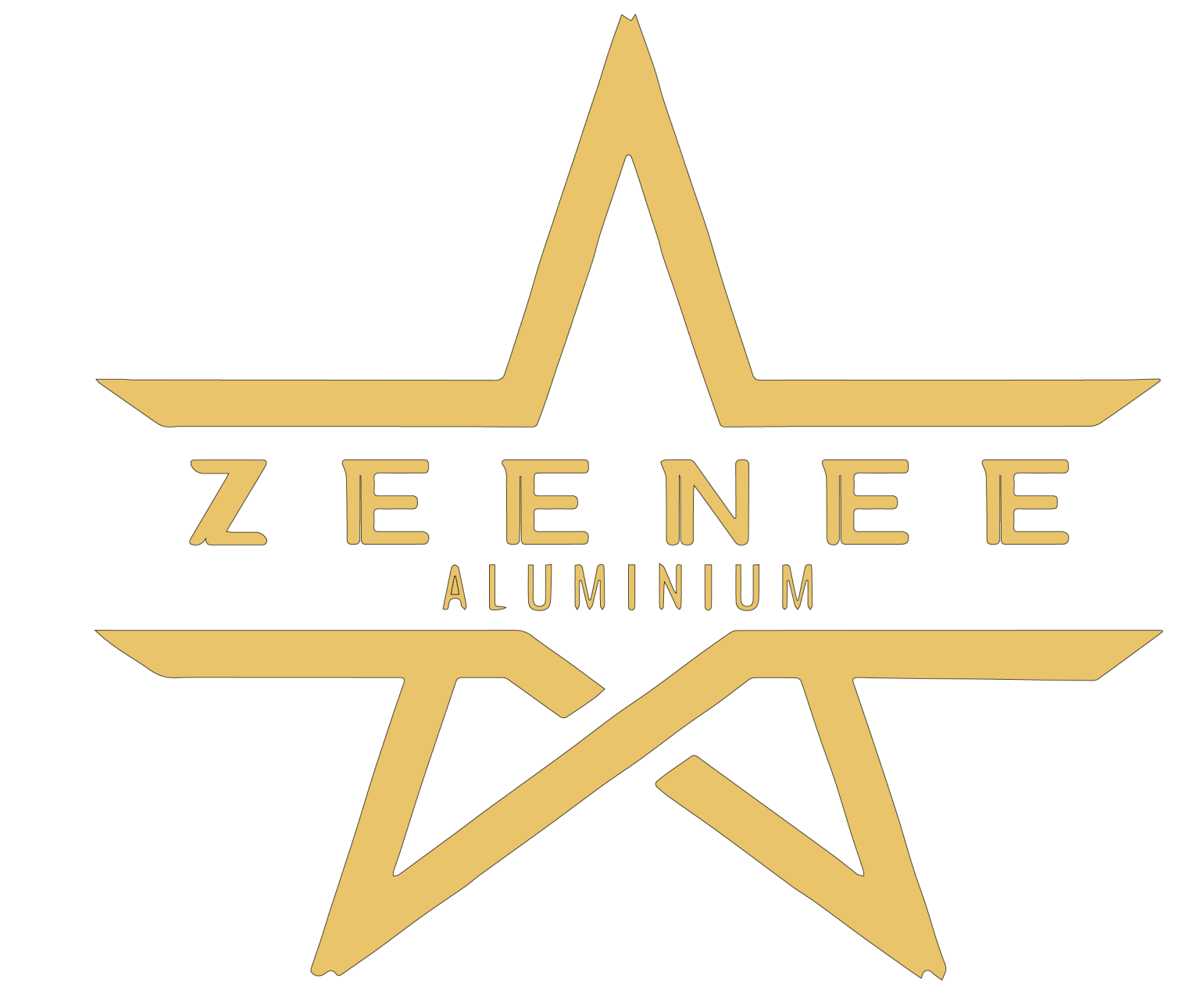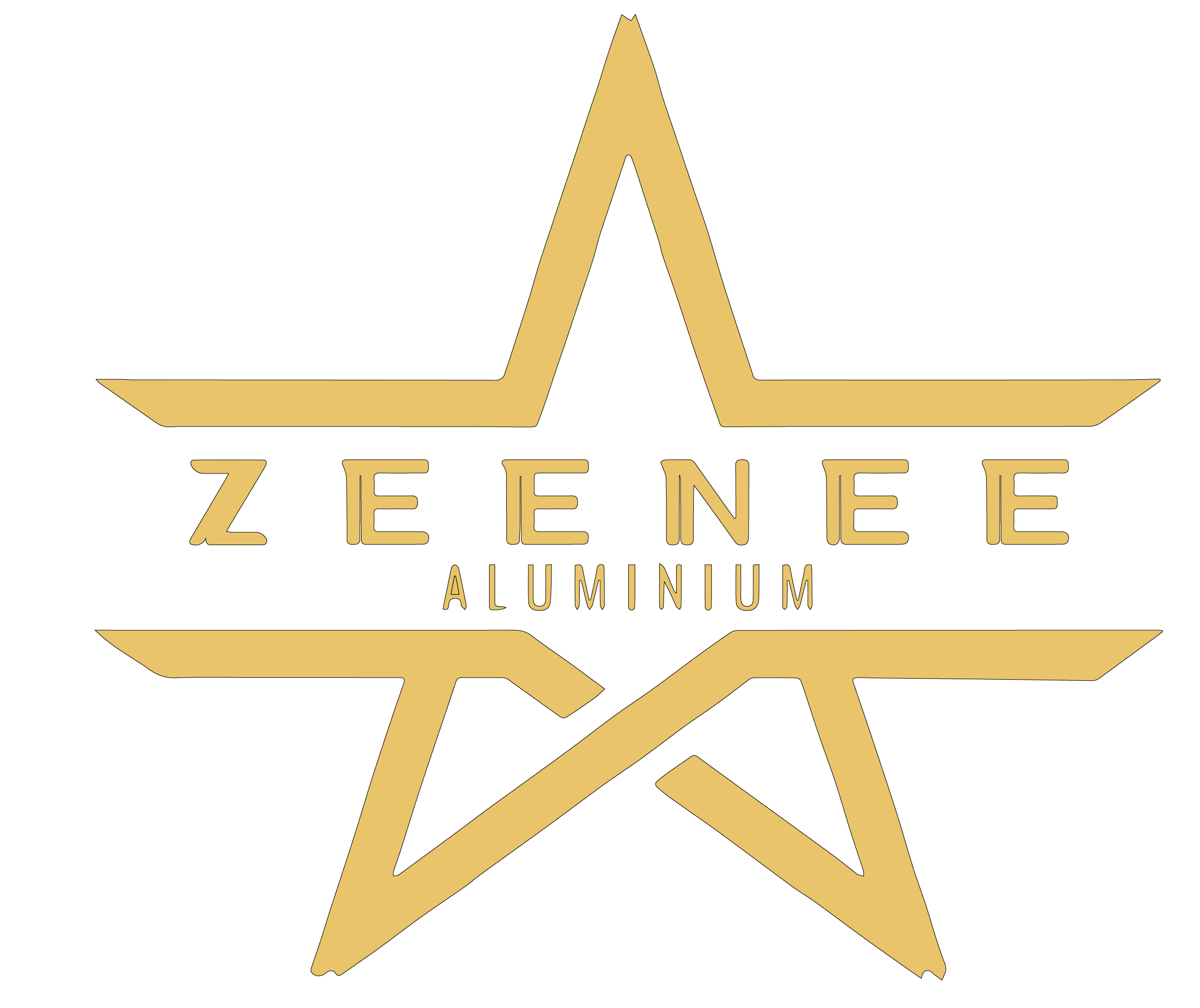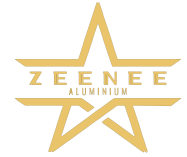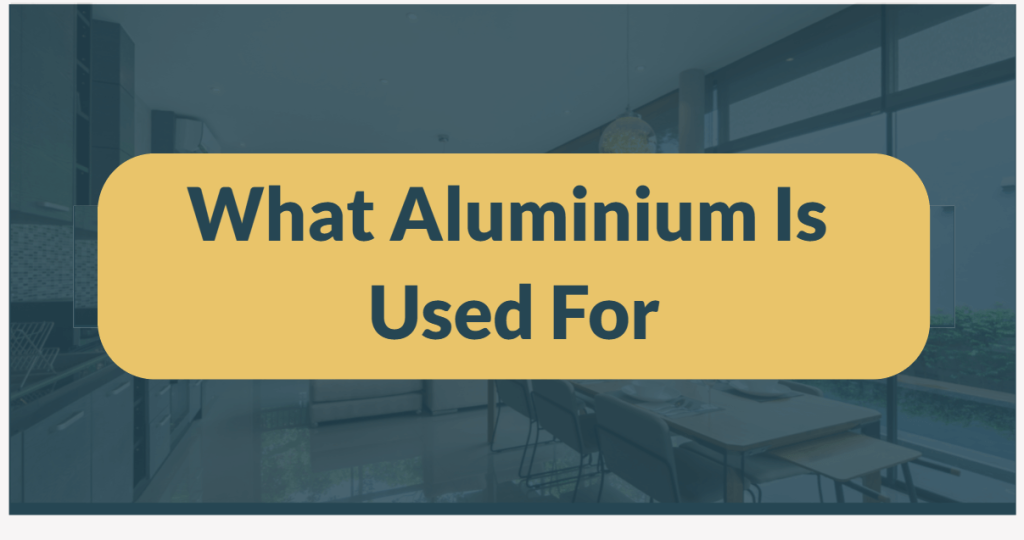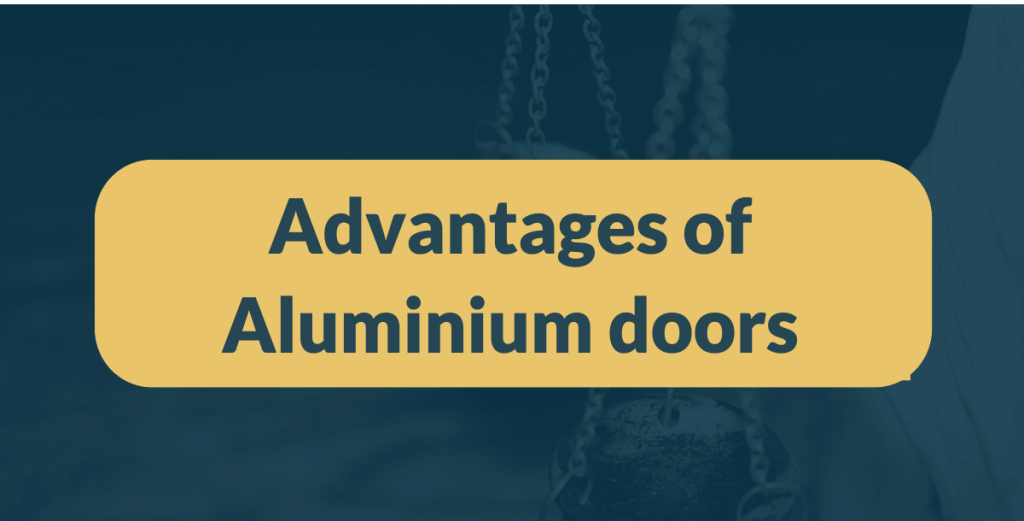A most common yet daunting question – What Aluminium is Used for?
Aluminum, a lightweight wonder metal, an abundant metal on earth, holds immense power and versatility that spans a multitude of industries. From construction to automotive, packaging to aerospace, and electronics to renewable energy, aluminum’s impact is far-reaching and transformative. In this article, we will explore the diverse sectors considering the common use of aluminium, delving into its exceptional qualities and unrivaled adaptability. Join us on a journey to uncover the remarkable versatility of aluminum and how it continues to shape our world with its high strength, ductile properties, malleability and sustainability.
Exploring the Versatility of Aluminium in Various Industries
Aluminum is a remarkable metal that has found its way into numerous industries, thanks to its exceptional properties and versatility. From construction to aerospace, packaging to electronics, and even renewable energy, aluminum plays a vital role in shaping modern society. Let’s delve into the different sectors and explore What Aluminium is used for> With its unique characteristics, how its made an invaluable material.
Aluminum in the Construction Industry: Strength, Durability, and Sustainability
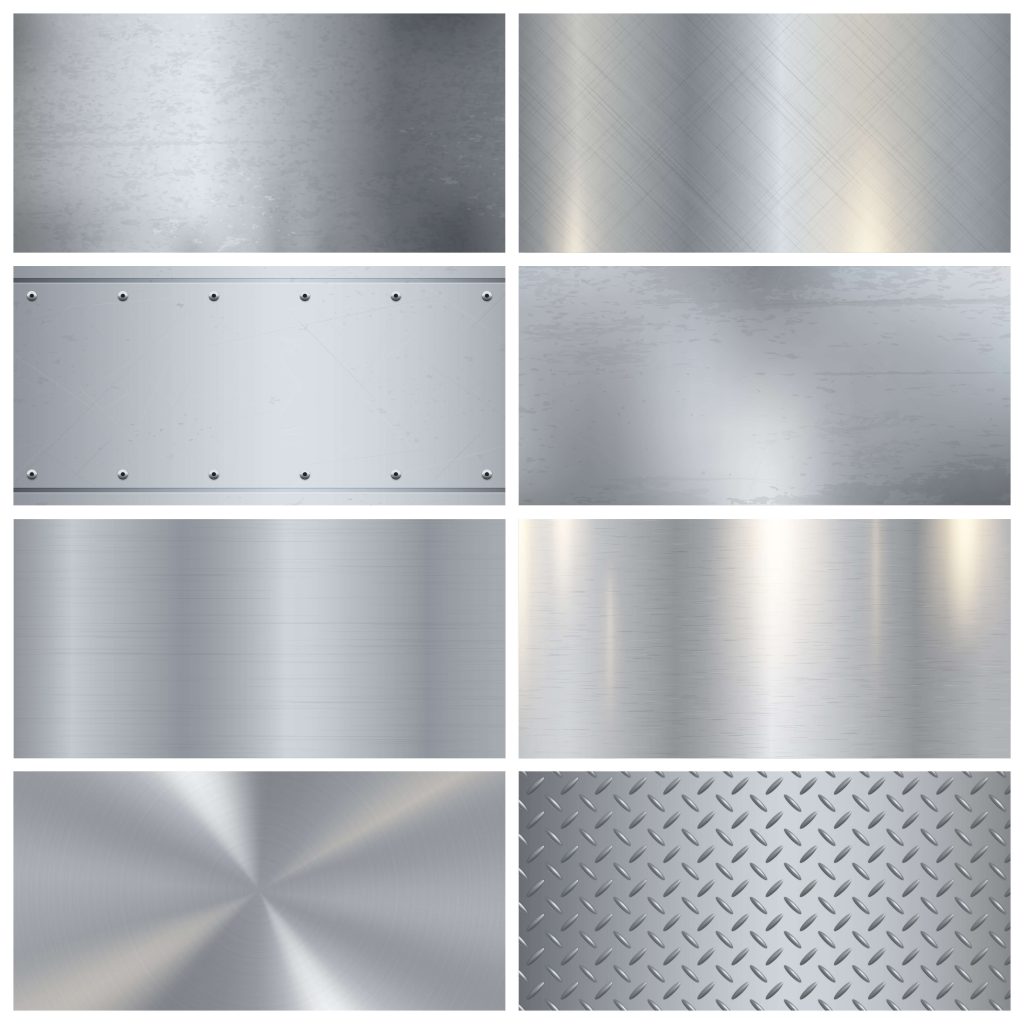
In the construction industry, aluminum has become a preferred choice due to its malleable properties, strength to weight ratio, and for being resistant to corrosion. When asking what aluminium is used for – the versatile nature of aluminium makes it easier to handle during construction, reducing labor costs and allowing for faster installation. Its corrosion-resistant properties ensure longevity, even in harsh environments.
Additionally, aluminum’s sustainability credentials are a significant advantage in the construction sector. Aluminum is fully recyclable without losing its structural integrity, making it an environmentally friendly choice. The recyclability of aluminum helps reduce energy consumption and greenhouse gas emissions, contributing to a greener construction industry.
Aluminum’s Contribution to the Automotive Sector: Lightweight Solutions for Efficiency and Safety
Due to the properties of aluminium, the automotive industry heavily relies on it, which contributes to fuel efficiency and improved performance. Aluminium is ideal for manufacturing vehicle bodies as car manufacturers can reduce weight while maintaining durability. This weight reduction translates into improved fuel efficiency and lower emissions, addressing environmental concerns.
Moreover, aluminum’s exceptional crash energy absorption characteristics make it an ideal material for enhancing vehicle safety. It dissipates impact forces during collisions, minimizing the risk of severe injuries to occupants. Aluminum’s strength and ability to withstand deformation plays a crucial role in ensuring the safety of automotive structures. Hence when considering What Aluminium is Used for – automotive industry strikes as the highest consumer.
Exploring Aluminum’s Role in Packaging: Preserving Freshness and Enhancing Convenience

When it comes to packaging, aluminum offers a wide range of benefits. Its excellent barrier and non-toxic properties protect perishable goods from moisture, light, and oxygen, preserving their freshness and extending their shelf life. Aluminum packaging is commonly used for beverages, food items, pharmaceuticals, and cosmetics.
Additionally, aluminum makes it convenient for packaging and transportation because of its low weight. It provides a strong, yet lightweight solution, reducing the overall weight of packages and decreasing shipping costs. Aluminum packaging is also easily recyclable, contributing to sustainable waste management practices.
Aluminum’s Impact on the Aerospace Industry: Efficiency, Performance, and Reliability
In the aerospace industry, aluminum’s remarkable properties are highly valued. Its low density, cladding abilities and ability to be coated make it an excellent choice for aircraft components, reducing weight and improving fuel efficiency. Aluminum alloys offer exceptional strength-to-weight ratios, allowing manufacturers to design aircraft that are both light and heat tolerable.
Furthermore, aluminum’s resistance to corrosion and being able to be anodised ensures the durability and longevity of aerospace structures, even in challenging environments. The metal’s thermal conductivity properties also aid in dissipating heat from engines and other critical components, contributing to overall performance and reliability.
Aluminum in Electronics and Technology: Aiding Innovation and Advancing Connectivity
Aluminum’s electrical conductivity and thermal properties make it a valuable material in the electronics and technology sectors. It is commonly used for power lines because galvanised aluminium is great for power transmission lines, even better than copper or stainless steel. It is also a commonly used metal for heat sinks, providing efficient cooling for electronic devices and appliances. The lightweight nature of aluminum is also advantageous for portable devices, such as laptops and smartphones, where weight reduction is essential.
Moreover, aluminum’s aesthetic appeal has made it a popular choice for consumer electronics, with sleek and modern designs. Its ability to be easily formed and molded into various shapes allows for intricate designs, enhancing the visual appeal of electronic products.
Aluminum in Renewable Energy: Harnessing the Power of the Sun and Wind
The renewable energy sector has also embraced aluminum for its unique properties. In solar power generation, aluminum is used in the production of photovoltaic (PV) panels and solar reflectors. Aluminum’s corrosion resistance ensures the longevity of these components, even in outdoor environments.
Similarly, aluminum plays a crucial role in wind energy systems. It is used in wind turbine structures and blades due to its lightweight nature and excellent fatigue resistance. Aluminum components contribute to improved energy efficiency and reliability in wind power generation.
Aluminum’s Essential Role in the Food and Beverage Industry: From Cans to Foils
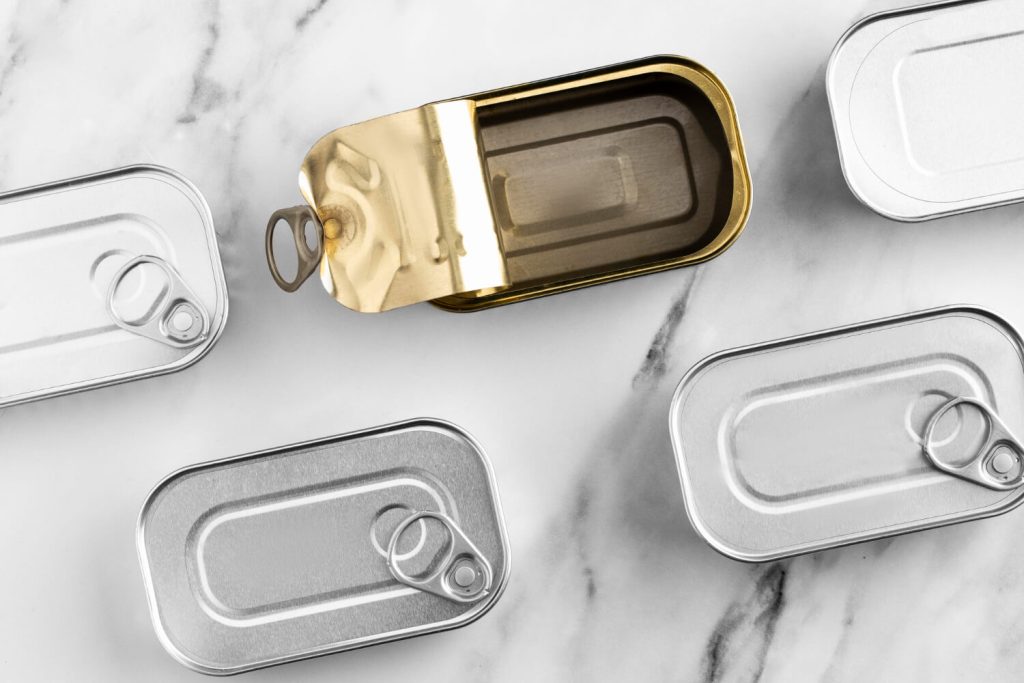
In the food and beverage industry, aluminum has become indispensable. The most notable use is in beverage cans, where aluminum offers an excellent combination of strength and lightness. Aluminum cans provide a barrier against light, air, and moisture, preserving the flavor and freshness of beverages.
Additionally, aluminum foil is widely used for packaging food products, providing a protective barrier against contaminants, extending shelf life, and facilitating convenient storage and reheating. Its flexibility and malleability make it easy to wrap food items of various shapes and sizes. When considering What Aluminium is Used for, using it for food and beverages might be the second biggest consumer industry.
Aluminum in Medical Applications: Enabling Advancements in Healthcare
Aluminum’s biocompatibility, corrosion resistance, and sterilizability have made it a valuable material in the medical field. It is used in the production of medical equipment, such as surgical instruments, prosthetics, and implants. Aluminum’s lightweight nature is particularly advantageous for orthopedic implants, reducing the load on the patient’s body.
Furthermore, aluminum is used in medical packaging, where sterility and protection are critical. It ensures the integrity of medical supplies and pharmaceutical products, safeguarding them from contamination. The pharmaceutical and the medical industry overall what aluminium is used for.
Exploring Aluminum’s Use in Furniture and Home Decor: Style, Functionality, and Durability
Aluminum has gained popularity in the furniture and home decor industry due to its versatility and aesthetic appeal. Aluminum furniture offers a contemporary and sleek look, enhancing the overall design of modern living spaces. Its lightweight nature allows for easy rearrangement and mobility, providing flexibility in interior design.
Moreover, aluminum’s durability and resistance to rust make it suitable for outdoor furniture, withstanding various weather conditions. Aluminum furniture requires minimal maintenance, making it a practical and long-lasting choice for both indoor and outdoor settings.
Aluminum in Sports and Recreation: Enhancing Performance and Safety
Aluminum’s unique properties have made it a favored material in the sports and recreation industry. Its lightweight and high-strength characteristics have revolutionized the design of sporting equipment. From bicycles and tennis rackets to golf clubs and baseball bats, aluminum components provide athletes with enhanced performance and maneuverability.
Furthermore, aluminum’s ability to withstand impact and resist corrosion is crucial for ensuring safety in sports equipment. It offers reliable protection and durability in helmets, protective gear, and equipment frames.
Advantages of Choosing Aluminium for Windows and Doors
When exploring options for what aluminium is used for, the architectural industry hits many cords. When it comes to windows and doors, aluminum offers a multitude of advantages over other materials. Its remarkable strength, durability, and lightweight nature make it an ideal choice for building secure and long-lasting window and door systems.
Energy Efficiency and Sustainability: Aluminium’s Contribution to Green Design
In the era of sustainable construction, there are numerous advantages of aluminum doors and windows. They stand out for their energy-efficient properties. Aluminum frames can accommodate double or triple glazing, providing excellent thermal insulation and reducing energy consumption. The inherent recyclability of aluminum also contributes to sustainable building practices.
Aluminium’s Strength and Durability: Ensuring Long-lasting Windows and Doors
Aluminum’s exceptional strength and durability ensure that windows and doors withstand the test of time. They are resistant to warping, cracking, and corrosion, even in extreme weather conditions. Aluminum frames require minimal maintenance, offering long-term cost savings and peace of mind.
Enhancing Security with Aluminium: Robustness and Protection for Your Home
Home security is a top priority for homeowners, and aluminum windows and doors provide robustness and protection. The strength of aluminum frames, coupled with advanced locking systems, enhances the security of residential properties. Aluminum’s resistance to forced entry and its ability to withstand impact make it a reliable choice for ensuring the safety of your home.
Key Uses of Aluminium in the Window and Door Industry
In the window and door industry, aluminum finds a wide range of applications. Aluminum frames are used for windows, sliding doors, bi-fold doors, and entrance doors. Its versatility allows for various design options, catering to different architectural styles and preferences.
Designing Aluminium Windows and Doors: Customization Options and Aesthetics
Aluminum windows and doors offer extensive customization options, allowing homeowners to tailor the design to their preferences. They come in a variety of colors, finishes, and profiles, enabling seamless integration with the overall aesthetics of the building. Whether it’s a sleek modern look or a classic design, aluminum provides flexibility in creating the desired visual impact.
Aluminium Windows vs. Other Materials: Why Aluminium Reigns Supreme
When compared to other materials like wood, uPVC, or steel, aluminum stands out for its numerous advantages. Unlike wood, aluminum frames are resistant to rot, termite infestations, and weather damage. They also require significantly less maintenance compared to wooden frames. Additionally, aluminum frames offer better thermal performance than uPVC frames and are stronger and more durable than steel frames.
Aluminium Windows and Doors in the UK: Adapting to Local Weather Conditions
In the UK, where weather conditions can be challenging, aluminum windows and doors are particularly suited to withstand the elements. They are designed to provide effective insulation, keeping homes warm in cold weather and reducing heat transfer during hot summers. Aluminum’s durability ensures that windows and doors remain resilient in the face of strong winds and heavy rain.
FAQs
What is aluminium used for the most?
What Aluminium is used for is classified in a wide range of industries, but one of its most common and prominent uses is in the construction industry. Its strength, durability, good heat and electric conductor, and corrosion resistance make it an ideal material for building structures, such as doors, windows, roofing, and facades. Additionally, aluminum is extensively used in transportation, particularly in the automotive industry, due to its lightweight nature, which contributes to fuel efficiency. Another significant application of aluminum is in packaging, where it is utilized for cans, foils, and containers due to its ability to preserve freshness, protect against light and air, and provide convenience.
Is aluminum the most used metal?
Yes, aluminum is indeed one of the most widely used metals worldwide. Its versatile properties and abundance make it an ideal choice for a variety of applications. What Aluminium is used for can be commonly described as a metal for industries such as construction, automotive, aerospace, packaging, and electronics. It is utilized in various forms, including foils, cans, window frames, and wiring, among others.
The abundance of aluminum on Earth and its recyclable nature contribute to its sustainable appeal. Aluminum’s low weight and corrosion-resistant properties make it suitable for applications such as structural components, power transmission lines, and galvanized coatings. It finds use in transportation, including trains, boats, and cargo vessels, where its lightweight design improves fuel efficiency.
In the architectural field, aluminum is favored for its versatility and ability to reinforce structures while reducing weight. It is employed in building bridges, skyscrapers, and speedboats. Additionally, aluminum is commonly utilized in electronics, including TVs, laptops, tablets, smartphones, and cables, thanks to its conductivity and low weight.
One of the notable benefits of aluminum is its ability to retain its properties without losing its structural integrity. It can serve as a reflector of light and heat, reducing emissions and enhancing energy efficiency. Furthermore, aluminum is extensively used for overhead wiring, reinforcing materials, and as a reflector in various industries.
With its recyclable nature and broad range of applications, aluminum continues to be a valuable and versatile metal across industries and plays a crucial role in advancing technology, sustainability, and architectural innovation.
Conclusion
Aluminum’s versatility in various industries is truly impressive. What aluminium is used for is defined by its role in construction and automotive sectors to packaging, aerospace, electronics, renewable energy, and beyond, aluminum has proven its worth as a reliable and adaptable material. Its strength, durability, lightweight nature, and sustainability credentials make it an excellent choice for a wide range of applications. Whether it’s enhancing performance and safety, contributing to energy efficiency and green design, or adding style and durability to windows and doors, aluminum continues to shape our modern world.
